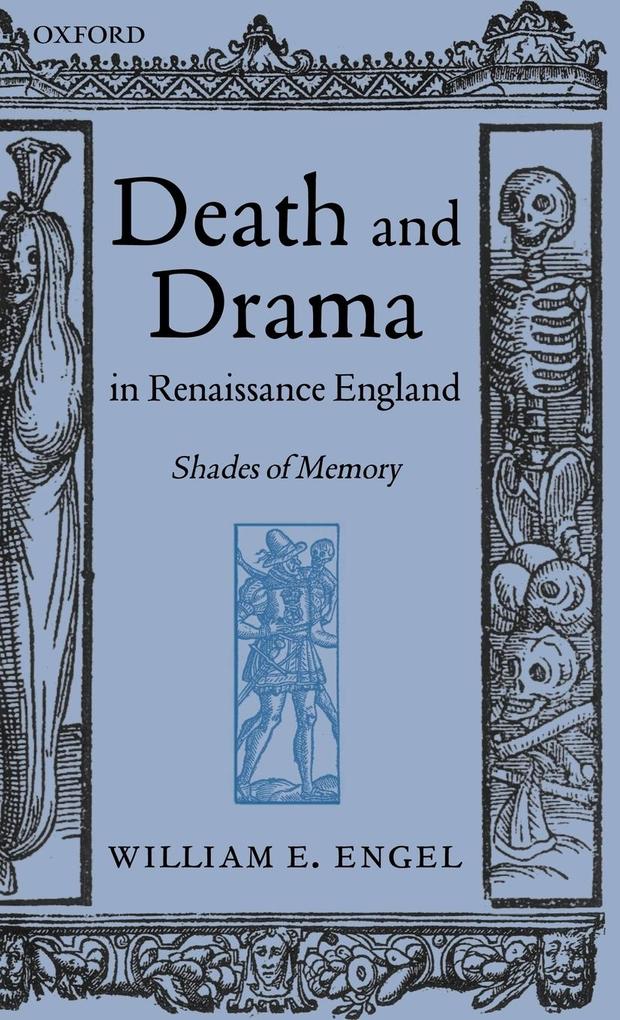
Zustellung: Di, 19.08. - Sa, 23.08.
Versand in 2 Wochen
VersandkostenfreiBestellen & in Filiale abholen:
Drawing on a range of works from the English Renaissance, Death and Drama in Renaissance England offers a novel way to understand, in their original contexts, key aspects of Renaissance mental life and letters. Focusing on the classical Memory Arts, William Engel explores issues of death and decline in exemplary dramas, dictionaries, and histories of the period, and demonstrates the ways in which emblems and memory images were used to communicate special meanings.
Inhaltsverzeichnis
- List of illustrations
- Note on conventions used in the text
- Preface
- Introduction: 'Take Away But One Letter': The Spirit of Decline
- I. Staging kinetic emblems of fatal destiny
- 1: 'Commonplaces of memory': visual regimes and charmed spaces
- 2: 'But yet each circumstance I taste not fully': spectacles of ruin
- II. The true work of translation
- 3: 'Touching my translation': linguistic decorum and memory's domain
- III. The marrow and moral of history
- 4: 'O eloquent, iust, and mighty Death!': ending The History of the World
- 5: 'More easie to the readers memory': using The History of the World
- Conclusion: 'Simulars of the dead': a final declension
- Appendix: The end of Ralegh's History of the World
- Bibliography
- Index
Produktdetails
Erscheinungsdatum
06. Februar 2003
Sprache
englisch
Untertitel
Shades of Memory.
Sprache: Englisch.
Seitenanzahl
214
Autor/Autorin
William E Engel
Verlag/Hersteller
Produktart
gebunden
Gewicht
327 g
Größe (L/B/H)
227/140/17 mm
ISBN
9780199257621
Pressestimmen
...will certainly reinvigorate early modern memory studies, and Engel remains the Renaissance memory arts' most eloquent spokesperson. Sixteenth Century Journal
Bewertungen
0 Bewertungen
Es wurden noch keine Bewertungen abgegeben. Schreiben Sie die erste Bewertung zu "Death and Drama in Renaissance England" und helfen Sie damit anderen bei der Kaufentscheidung.










